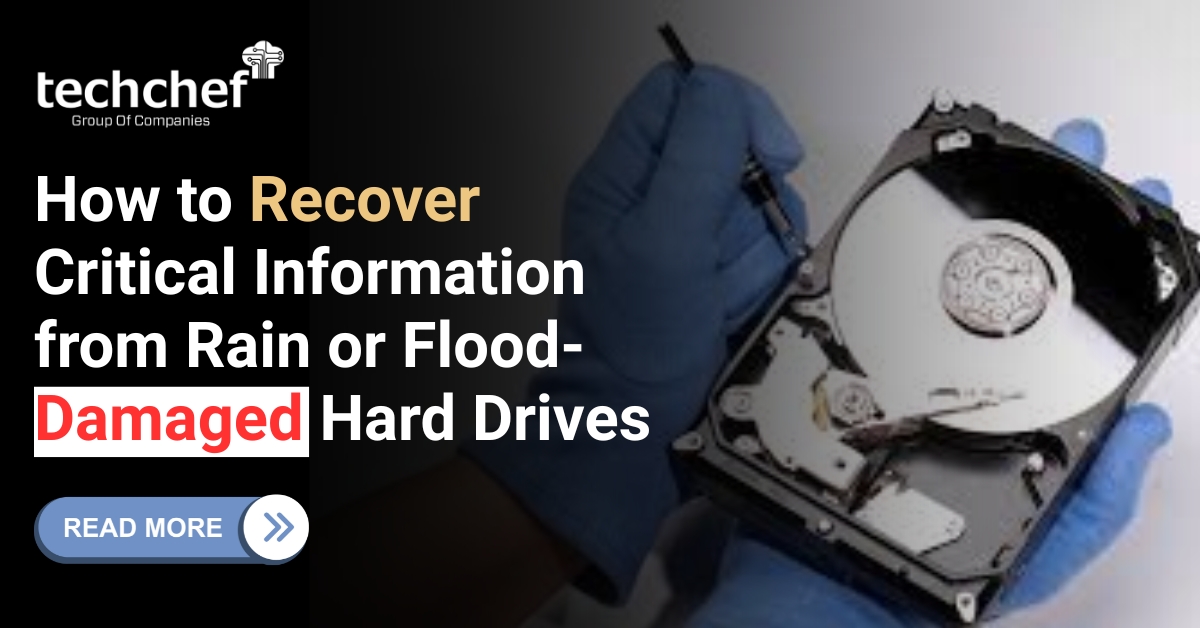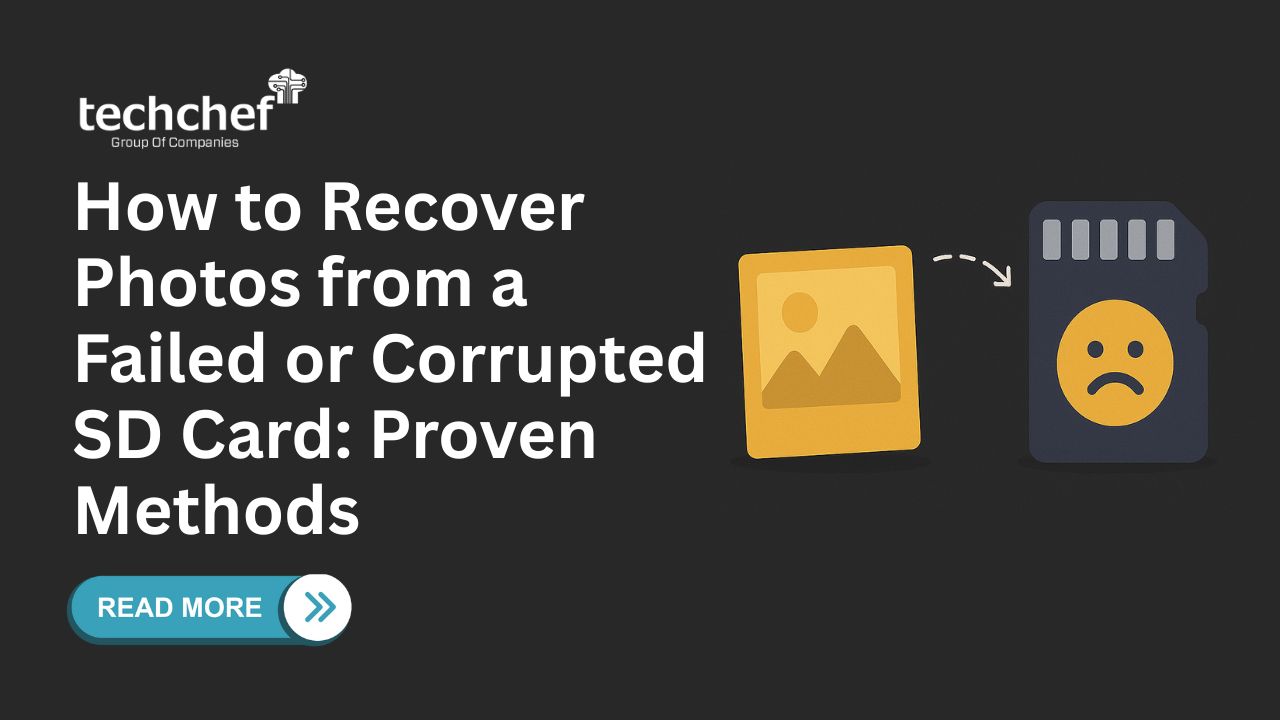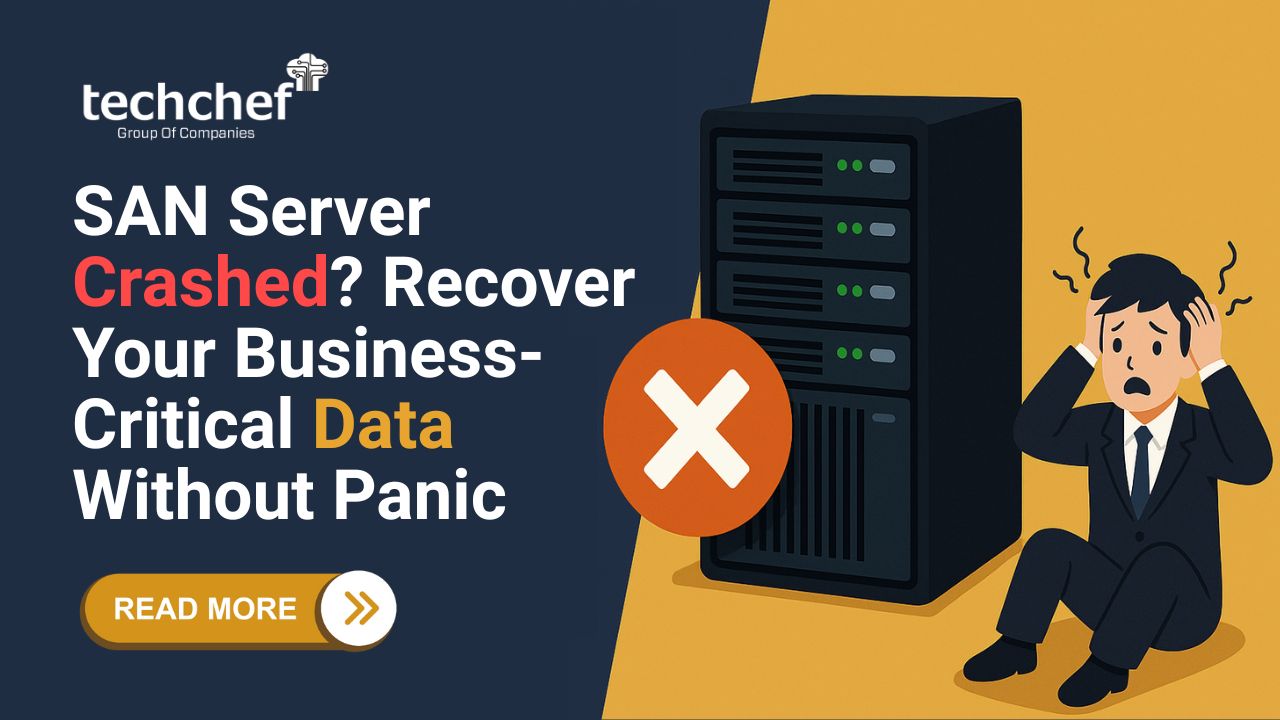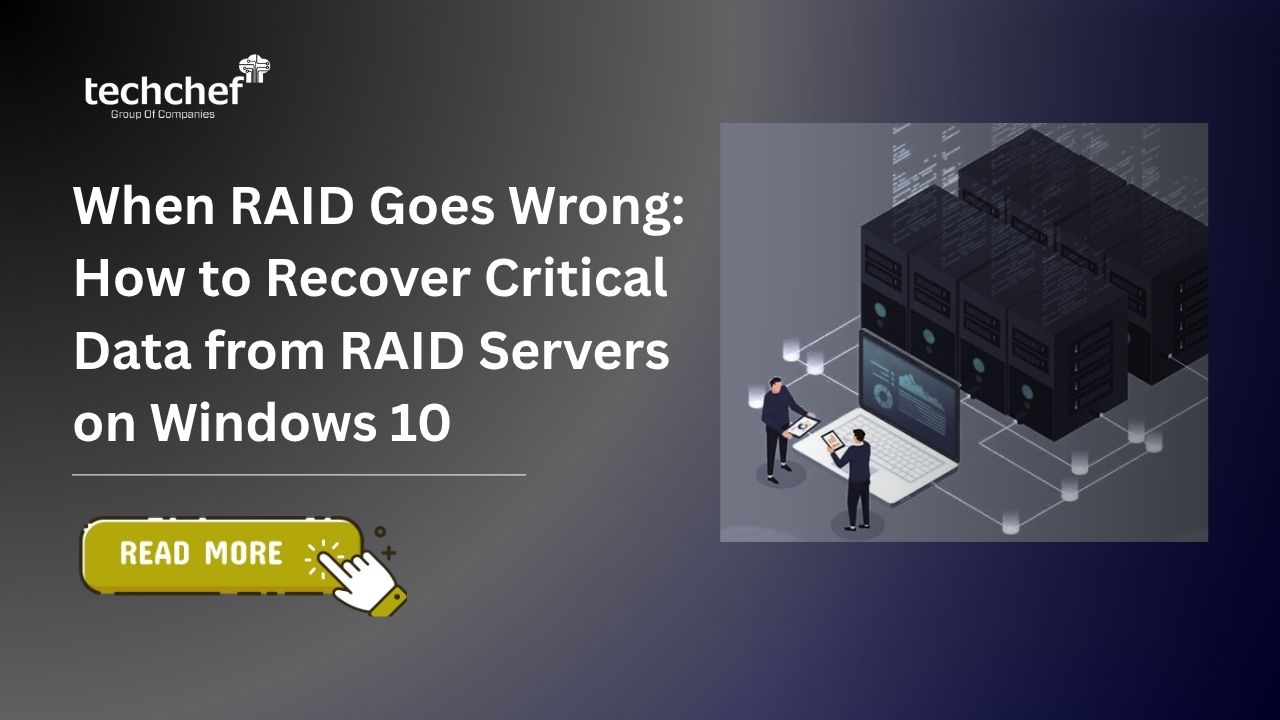Most businesses use RAID array systems for transferring, storing or keeping data backup because of the redundancy feature RAID system offers, especially RAID 5.
The redundant array of independent disks or, for short, ‘RAID‘ stores data across the array equally, but when one disk fails, the system still works due to the RAID system’s fault tolerance.
Unfortunately, RAID systems are vulnerable to failure regardless of fault tolerance features due to human, electrical or mechanical errors.
The system is complex, and if you try to fix things and during this, something goes wrong, you can tend to lose your data forever. Here are some of the steps you should avoid while your RAID fails to reduce the possible chances of permanent data loss.
Reasons why a RAID system fails
Haven’t heard of Techchef yet? We are the leading data recovery company in India for providing the aptest Data Recovery Solutions to protect your business from abrupt data loss and assure up to 100% success rates
Web🌐https://t.co/jAOLrmjXHS#Techchef #TrustTheBest #SSD #HDD pic.twitter.com/m2hgddXb21
— Techchef Data Recovery (@asktechchef) June 3, 2021
Many reasons can contribute to RAID failure that renders the data inaccessible stored in it due to human, electrical or hardware issues that should be encountered before you lose your data forever.
Accidentally deleted data
Reformatted data
Controller failure
Failure in RAID rebuild
Power outage or unstable power supply
Multiple disk failure
Virus or malware corruption
Natural calamities: fire or flood
What to do when RAID failure occurs?
When you undergo a RAID failure, there are possible ways by which you can reduce the chances of data loss which might be valuable to you and protect it from permanent inaccessibility.
Stop using the failed RAID to avoid overwritten data
Shut down the system immediately
Disconnect with the power supply
What steps should you Avoid to save your Failed RAID?
After you experience RAID failure, there can be many recovery ideas that hit your mind, but you should avoid these steps to increase the risk of data loss.
Avoid rebuilding in the RAID system; one mistake can ruin the whole process.
Do not try DIY Raid data recovery, especially opening the disk; it could severely damage the disk.
Do not replace the controller; it will lead to data loss.
Do not replace disks on your own; it is a complex process that a data recovery specialist should only perform.
Conclusion
All the don’t of the RAID failure that you should avoid can protect your RAID data from permanent inaccessibility and increase maximum data recovery chances.
For a suitable data recovery solution, you should contact a data recovery expert to get suitable and on-time RAID data recovery solutions to retrieve your lost data.
Techchef experts can help you
Techchef offers the most reliable and best in class RAID data recovery solutions by experts with 15+ years of experience recovering lost data from corrupted, damaged or crashed RAID systems. Be it RAID 1, RAID 5 or 10; we potentially recover your RAID data regardless of the complexity with the appropriate course of action to get you the most effective solutions.
For the fastest and reliable RAID data recovery, call us at our toll-free 1800-313-1737 and have a free consultation with our experts regarding your data loss problems.










